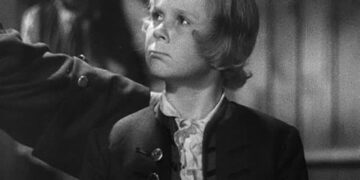‘The Luzhin Defence’ is a literary masterpiece that draws you into the intricate mind of a chess prodigy.
This novel is a powerful exploration of obsession, isolation, and the fine line between genius and madness. It’s a thought-provoking read that challenges the reader to consider the hidden depths of the human psyche.
The protagonist, Luzhin, is a chess master who becomes consumed by the game to the point of losing his connection with reality.
The narrative provides a detailed exploration of Luzhin’s life, detailing his descent into madness against the backdrop of his passion for the game.
This novel will not only enthrall chess enthusiasts but also those interested in psychological studies and character development.
‘The Luzhin Defence’ is a book that lingers with you long after you’ve turned the last page.
It’s a story that forces you to question the fine line between genius and madness, and the consequences that obsession can have on an individual’s life.
Brief Biography of Vladimir Nabokov and His Works
Vladimir Nabokov, renowned for his linguistic prowess and unique narrative style, has enthralled readers worldwide with his literary works.
Born in Russia in 1899, Nabokov’s writing career spanned several decades and reflected his experiences in Russian aristocracy, European exile, and American academia.
Nabokov’s works often challenge traditional narrative structures, favoring nonlinear narratives and unreliable narrators.
His characters are complex and multifaceted, often grappling with their identities in an ever-changing world. Apart from ‘The Luzhin Defence’, his other notable works include ‘Lolita’, ‘Pale Fire’, and ‘Speak, Memory’.
In his lifetime, Nabokov penned numerous novels, short stories, and essays, making a significant contribution to 20th-century literature.
His profound understanding of human nature, combined with his unique narrative style, continues to inspire readers and writers alike.
Detailed Book Summary of ‘The Luzhin Defence’
‘The Luzhin Defence’ introduces us to the protagonist, Aleksandr Ivanovich Luzhin, as a socially awkward child with an extraordinary talent for chess.
As the narrative progresses, we witness Luzhin’s development from a chess prodigy to a world-renowned chess player.
The chessboard becomes Luzhin’s world, and he begins to see life through the lens of the game.
However, this obsession with chess leads Luzhin to the brink of madness. He starts experiencing life as a complex chess game, with people as pieces and events as moves. This results in Luzhin losing his grip on reality.
In the desperate hope of saving him, his wife tries to keep him away from chess, but it only drives him further into his delusions.
In the climax of the story, Luzhin, trapped in his hallucinations, perceives a deadly move planned against him.
To evade this, he thinks he must make a counter-move, which tragically results in his suicide. The book ends on a poignant note, leaving readers to reflect on the devastating consequences of obsession.
Comparative Analysis: ‘The Luzhin Defence’ Book vs. Movie
Marleen Gorris, an acclaimed Dutch director, adapted ‘The Luzhin Defence’ for the big screen.
While the film stays true to the essence of the book, there are some notable differences. For instance, the movie puts more emphasis on the romantic relationship between Luzhin and his wife, while the book focuses more on Luzhin’s obsession with chess.
Moreover, the movie simplifies the nonlinear narrative of the book and presents the story in a more chronological order.
This change arguably makes the story more accessible to a broader audience. However, some might argue that this takes away from the complexity of the character and his descent into madness, which is more vividly portrayed in the book.
The movie also adds a more dramatic element, particularly in the climax. While the book leaves Luzhin’s end open to interpretation, the film explicitly shows Luzhin committing suicide Guide for Parents: What to Know About ‘The Luzhin Defence’
As a parent, it’s essential to be aware of the themes and content of the media your children consume.
‘The Luzhin Defence’, both as a book and a film, explores mature themes like mental health, obsession, and suicide. Therefore, it may not be suitable for young or sensitive readers/viewers.
The narrative delves deep into the psychological turmoil of the protagonist, making it a compelling but intense read.
It’s recommended for older teenagers who can comprehend and appreciate the psychological depth and complexity of the story.
Furthermore, the book and the movie both portray the suicide of the protagonist, which can be distressing.
Therefore, it’s necessary to have open and supportive discussions with your children if they choose to engage with this story. It’s an opportunity to talk about mental health and the importance of seeking help when feeling overwhelmed or distressed.
The Setting: When and Where ‘The Luzhin Defence’ Takes Place
Nabokov’s ‘The Luzhin Defence’ is set primarily in early 20th century Europe. The narrative starts in St. Petersburg, Russia, where Luzhin’s journey with chess begins.
As Luzhin’s chess career takes off, he travels to various European cities for tournaments, reflecting the cosmopolitan nature of the chess world during that era.
The narrative also shifts to a serene Italian resort town where Luzhin meets his future wife. This setting contrasts with the intense, competitive atmosphere of the chess tournaments, highlighting Luzhin’s struggle to balance his personal life with his obsession with chess.
The time period is crucial to the narrative as it reflects the societal norms and expectations of that era.
Luzhin’s character is shaped by his experiences within this historical and geographical context, adding depth and authenticity to the narrative.
Exploring the Film Locations of ‘The Luzhin Defence’
Marleen Gorris’s film adaptation of ‘The Luzhin Defence’ brings to life the various settings of the novel.
The film was shot in various locations across Europe, including Italy and Hungary, creating a visually stunning backdrop for the narrative.
The idyllic Italian resort town where Luzhin meets his love interest is portrayed by Lake Como in Italy.
Its picturesque landscapes and historic architecture add a touch of romance to the film.
The chess tournaments, central to the narrative, were filmed in Budapest, Hungary. The grand interiors of the Hungarian National Museum served as the venue for the climactic chess tournament.
These locations not only bring authenticity to the film but also enhance the visual storytelling.
Who’s Who: A Guide to the Characters in ‘The Luzhin Defence’
Aleksandr Ivanovich Luzhin is the protagonist of ‘The Luzhin Defence’. He is a chess prodigy who becomes one of the world’s best players. Luzhin is a complex character, portrayed as socially awkward and constantly consumed by thoughts of chess.
Luzhin’s wife, who remains unnamed in the book, is a supportive and caring woman who tries to save Luzhin from his obsession.
In the film, she is given the name Natalia. She is the counterpoint to Luzhin’s instability, providing a semblance of normality in his chaotic world.
Valentinov is Luzhin’s chess tutor and mentor in his early years.
He recognizes Luzhin’s talent and exploits it for his own gain. His character represents the dark side of ambition and greed.
Turati is Luzhin’s main rival in the world of chess. He is portrayed as a formidable opponent, adding tension and competition to the narrative.
Memorable Quotes from ‘The Luzhin Defence’
‘The Luzhin Defence’ is rife with memorable quotes that highlight the brilliance of Nabokov’s writing and the complexity of the narrative. Here are a few that stand out:
- “The more strictly he adhered to the rules of the game, the more unexpected were his moves.”
- “He lived in a world of his own—a world of little glass beads.”
- “He no longer knew where reality ended and his hallucinations began.”
Each quote encapsulates Luzhin’s state of mind, his obsession with chess, and his struggle with reality.
The Soundtrack of ‘The Luzhin Defence’ by Alexandre Desplat
The film adaptation of ‘The Luzhin Defence’ features a mesmerizing soundtrack by Grammy-winning composer Alexandre Desplat. The music plays a vital role in enhancing the emotional depth of the film.
Desplat’s compositions perfectly capture Luzhin’s internal struggles and the overall mood of the narrative.
The soundtrack is a blend of classical and contemporary music, reflecting the historical setting of the film and the timeless themes it explores. Desplat’s compositions add another layer of complexity to the film, making it a memorable viewing experience.
Curiosities and Lesser-Known Facts About ‘The Luzhin Defence’
Though ‘The Luzhin Defence’ is one of Nabokov’s lesser-known works, it has its fair share of curiosities.
For instance, Nabokov, like Luzhin, was a passionate chess player. He incorporated his understanding and love for the game into the narrative, adding authenticity to Luzhin’s character and his obsession with chess.
Additionally, the film adaptation of ‘The Luzhin Defence’ was the first English-language film to be directed by Marleen Gorris, a Dutch director known for her feminist films. This marked a significant milestone in her career.
Interestingly, Nabokov originally wrote ‘The Luzhin Defence’ in Russian. It was later translated into English by his son, Dmitri Nabokov.
Tips for Cosplaying Characters From ‘The Luzhin Defence’
Cosplaying characters from ‘The Luzhin Defence’ can be an exciting way to engage with the narrative. Here are some tips to help you get into character:
- Luzhin: Emphasize Luzhin’s obsession with chess by carrying a miniature chessboard or chess pieces. Dress in traditional early 20th-century attire – a suit and tie would be ideal. Don’t forget to portray Luzhin’s socially awkward demeanor and intense focus on chess.
- Luzhin’s Wife: In the film, Natalia is often seen in elegant dresses typical of the 1920s. Opt for a vintage-style dress and complete the look with a classic updo and subtle makeup. Natalia’s character is calm and supportive, so portray these traits in your cosplay.
- Valentinov and Turati: These characters are best represented in formal attire, reflecting their roles as chess tutor and competitor, respectively. Props like chess books or a chess timer can add authenticity to your cosplay.
Dressing Like Characters from ‘The Luzhin Defence’
If you want to emulate the style of characters from ‘The Luzhin Defence’, focus on the fashion trends of the early 20th century. For Luzhin, opt for three-piece suits in neutral colors.
A tie and a pocket watch will add an authentic touch.
For Luzhin’s wife, go for elegant vintage dresses complemented by classic accessories like pearls and cloche hats. Hairstyles like buns and finger waves will complete the look.
For Valentinov and Turati, stick to formal attire. A waistcoat, a bow tie, and a hat can enhance the look.
Remember, the key is to capture the essence of the characters while staying true to the fashion of the era.
The Ending of ‘The Luzhin Defence’ Explained
The ending of ‘The Luzhin Defence’ is poignant and tragic. Luzhin, unable to differentiate between reality and his chess-induced hallucinations, perceives a deadly move against him.
In an attempt to counter this move, he tragically takes his own life.
This ending underscores the devastating consequences of Luzhin’s obsession with chess. It’s a stark reminder of the fine line between genius and madness, and the potential dangers of crossing that line.
The Possibility of a Remake, Sequel, or Spin-Off of ‘The Luzhin Defence’
Given the novel’s complex narrative and the film’s visual storytelling, there’s potential for a remake, sequel, or spin-off of ‘The Luzhin Defence’.
A remake could offer a fresh interpretation of the narrative, while a sequel or spin-off could explore the lives of other characters or delve further into the world of competitive chess.
However, any such venture would need to respect the original narrative and retain the psychological depth that makes ‘The Luzhin Defence’ a compelling story.
It would certainly be intriguing to see how a modern interpretation of Luzhin’s story would unfold.
Other Notable Works by Marleen Gorris
Marleen Gorris is a prominent Dutch director known for her feminist films. Apart from ‘The Luzhin Defence’, her other notable works include ‘A Question of Silence’, ‘Broken Mirrors’, and ‘Antonia’s Line’, the latter of which won the Academy Award for Best Foreign Language Film.
Gorris’s films often explore themes of gender, power, and social justice, making her a significant figure in feminist cinema.
Her ability to tell compelling stories and create complex, realistic characters is evident in all her works.
Similar Media to ‘The Luzhin Defence’
If you enjoyed ‘The Luzhin Defence’, you might also like other media that explore similar themes.
‘The Queen’s Gambit’, a Netflix miniseries, delves into the world of competitive chess, while ‘A Beautiful Mind’ explores the fine line between genius and madness.
For more of Nabokov’s complex narratives and character studies, consider reading ‘Lolita’ or ‘Pale Fire’.
If you’re interested in film adaptations of literary works, ‘Pride and Prejudice’ and ‘The Great Gatsby’ might appeal to you.
Other Popular Works by Vladimir Nabokov
Apart from ‘The Luzhin Defence’, Vladimir Nabokov has written several other acclaimed works.
‘Lolita’, perhaps his most famous novel, is a controversial yet compelling narrative that explores themes of obsession and control.
‘Pale Fire’, another one of Nabokov’s masterpieces, is a complex narrative that blurs the line between fiction and reality.
‘Speak, Memory’, Nabokov’s autobiographical work, offers insights into his life and experiences, making it a must-read for his fans.
Engaging Book Club Questions on ‘The Luzhin Defence’
Discussing ‘The Luzhin Defence’ in a book club can lead to insightful conversations. Here are some questions to guide your discussion:
- How does Nabokov portray the fine line between genius and madness in Luzhin’s character?
- How does Luzhin’s obsession with chess impact his relationships and mental health?
- How does the setting of the novel influence the narrative?
- How does Nabokov use chess as a metaphor for life?
- How do you interpret the ending of the novel?
Video Games Inspired by ‘The Luzhin Defence’
While there are no video games directly inspired by ‘The Luzhin Defence’, many games incorporate elements of chess.
Games like ‘Battle Chess’ and ‘Chessmaster’ could appeal to fans of ‘The Luzhin Defence’ who are interested in the strategic aspects of chess.
Moreover, games that explore themes of mental health and obsession, like ‘Hellblade: Senua’s Sacrifice’ and ‘Celeste’, might resonate with those who appreciated the psychological depth of ‘The Luzhin Defence’.
A Travel Guide to Visit ‘The Luzhin Defence’ Locations
Exploring the locations featured in ‘The Luzhin Defence’ can be a thrilling experience for fans. Start with St. Petersburg, Russia, where Luzhin’s journey with chess begins.
Visit historic landmarks like the Winter Palace and the Hermitage Museum to get a feel for the city’s rich history.
Next, head to Lake Como in Italy, where Luzhin meets his future wife in the novel and film. Enjoy the serene landscapes and historic architecture that make this location so picturesque.
Finally, visit Budapest, Hungary, where the chess tournaments in the film were shot.
Explore landmarks like the Hungarian National Museum and the Budapest Chess Museum to immerse yourself in the world of ‘The Luzhin Defence’.
Conclusion
Vladimir Nabokov’s ‘The Luzhin Defence’ is a captivating exploration of obsession, genius, and madness. Whether you’re engaging with the novel or its film adaptation, the story offers a thought-provoking look at the human psyche.
From understanding the characters to exploring the real-life locations, there are countless ways to delve deeper into the world of ‘The Luzhin Defence’.
Whether you’re a chess enthusiast, a fan of psychological narratives, or simply a lover of good stories, ‘The Luzhin Defence’ is a compelling read and watch.













